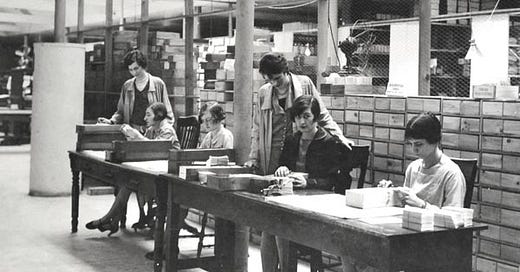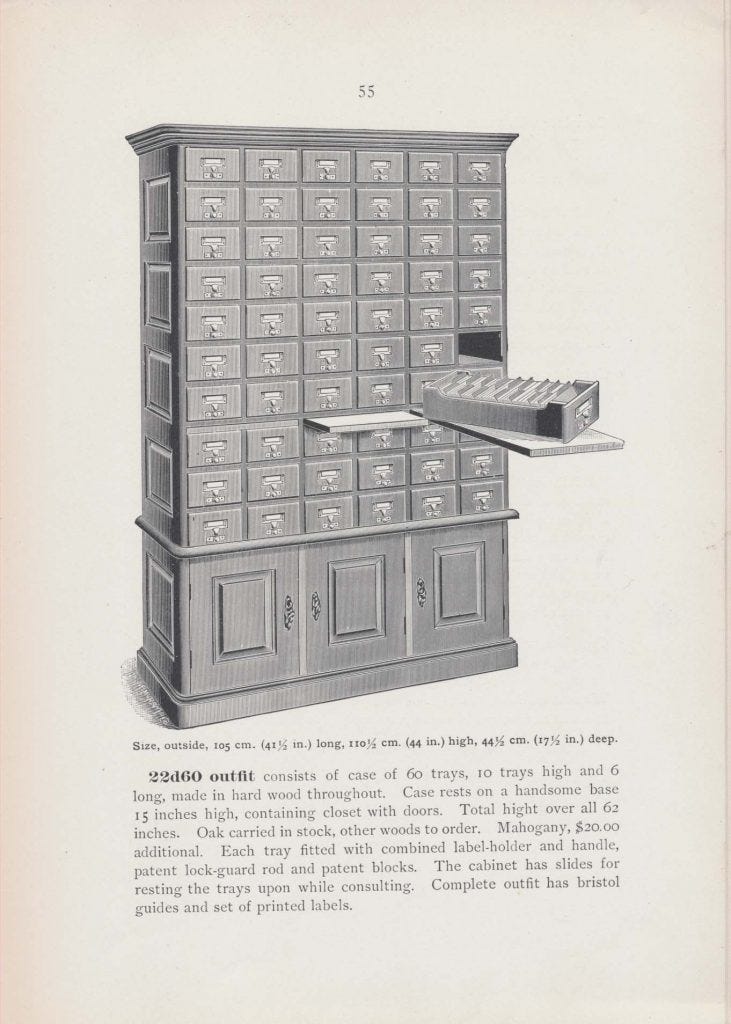A Guide to Alternative Sources for U. S. Government Data
Vanishing Data? Libraries and librarians are on the case
I’ve made some recent posts about specific types of government data that are at risk. I subsequently had so many questions about different topics and research areas that have been affected by government data purges that I created a research guide for Alternative Sources for Government Data for use in my library.
I think this guide is worth sharing here (in a more limited form) because government data is not just disappearing randomly – it’s being deliberately deleted according to criteria that are not transparent.
Quietly. Quickly. Sometimes without explanation.
Datasets that were once freely available— climate data, public health records, policy documents, justice reports—are increasingly restricted, removed, or buried under bureaucratic changes. Websites and media like historic photographs and video have also been ‘disappeared’. The impact has been immediate and far-reaching: researchers are blocked mid-project, educators lose trusted sources, and entire communities are denied access to information that affects their lives.
Erasing data is a form of erasing memory. And erasing memory makes accountability harder by design. But don’t make the mistake of thinking that this information is lost forever. They don’t have that power.
Librarians (among others) are following developments closely and are contributing to the many data rescue efforts by organizations and individuals across the research community.
It isn’t a perfect effort, but the movement is growing, led by organizations like the Data Rescue Project, a cross-institutional effort to preserve and maintain access to vulnerable U.S. government data.
Check out their website and the Data Rescue Portal where you can actually browse disappeared data by government agency or category.
Don’t worry - we’re saving data - lots of data!
Below is an abbreviated version of my research guide which has a curated list of alternative sources for federal data for major topics:
Alternative Sources for Government Data (General)
The Internet Archive is a free, non-profit public digital library and archive that preserves and provides access to digitized books, webpages, images, audio, and video. Archived government information can be found in several places:
The Wayback Machine: The Wayback Machine contains primarily archived websites, videos (television broadcast videos and films), and audio recordings.
US Government Documents: This government specific Internet Archive collection contains digital versions of United States Government documents, including agency documents, executive orders, and archived government webpages.
Democracy's Library: A project of the Internet Archive focused on Government Datasets, Documents, and Records (excluding webpages).
Independent Archives of Government Data
End of Term Web Archive: The End of Term Web Archive captures and saves U.S. Government websites at the end of presidential administrations.
DataLumos: DataLumos is an ICPSR (Inter-university Consortium for Political and Social Research) Archive for U.S. Government and other social science data. Users need to login to access. When prompted, click "sign in with Google" and use your NYU NetID credentials.
IPUMS: IPUMS (International Program for Microdata Project) provides census and survey data from around the world.
(GODORT) Government Documents Round Table 2025 Presidential Transition: The GODORT Government Documents Round Table is an ALA (American Library Association) forum for information professionals to discuss and disseminate news about government information.
Source Cooperative - Data.gov Mirror: A project of the Harvard Law School Library Innovation Lab, this is a regularly updated mirror of Data.gov, the US federal government data finding and storage site.
PolicyMap: PolicyMap is a subscription database for government and policy data. The database can be accessed via NYU libraries here: PolicyMap Database. Although this is a commercial resource, they have announced that Federal Agency and Government purged data remains available.
UChicago Data Mirror Project: A project of the University of Chicago Library and The UC Data Institute. This project takes publicly available datasets that have been traditionally hosted on government websites and "mirrors" the datasets in an easy-to-use format for researchers and—the public at large.
Alternative Sources for Science and Public Health Data
CDC Data on the Internet Archive: An archive of all CDC datasets uploaded to https://data.cdc.gov/browse before January 28th, 2025. Excludes corrupt datasets and data not publicly accessible.
Public Environmental Data Project: A volunteer coalition of several environmental, justice, and policy organizations, researchers across several universities, archivists, and students who rely on federal datasets and tools to support critical research, advocacy, policy, and litigation work.
Climate Change and Health Research Coordinating Center (CAFE) Collection @ Harvard Dataverse: The Climate Change and Health Research Coordinating Center (CAFE) Collection includes datasets from a number of US Federal agencies to enable research at the intersection of climate and human health.
Environmental Data and Governance Initiative (EDGI): The Environmental Data & Governance Initiative (EDGI) is a research collaborative and network of diverse professionals promoting evidence-based policy-making and public interest science that advances the Environmental Right to Know (ERTK). They have been archiving US federal environmental data.
The Climate Mirror Project: Lead by the Data Refuge Project of the University of Pennsylvania. “The Climate Mirror Project is trying to mirror and safely archive U.S. government websites and datasets related to climate, climate change, and global warming.
KFF: State Health Facts: An independent news source for health policy and research.
Justice Department January 6 Prosecution Documents: Also available on the Internet Archive: January 6 Committee Reports and Documents.
Silencing Science tracker: A joint initiative of the Sabin Center for Climate Change Law and the Climate Change Legal Defense fund. Tracks government attempts to restrict or prohibit scientific research, education, or discussion.
We have a system - really!







Thank you! I appreciate the effort to pull this together.